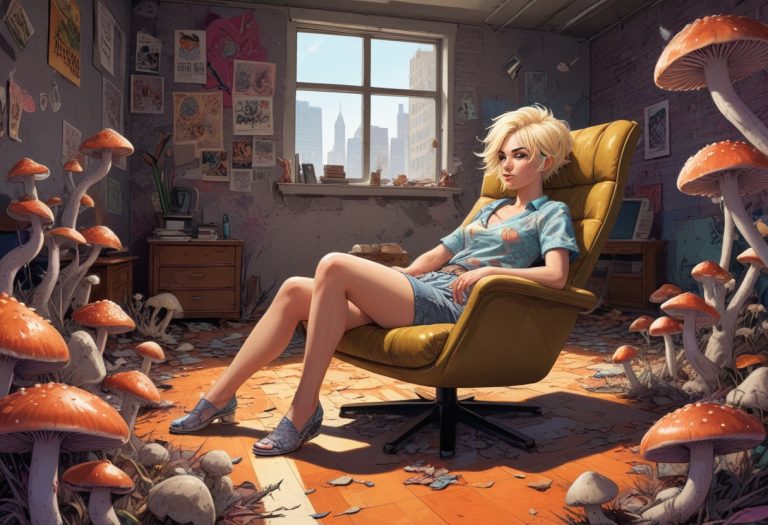
FREE SHIPPING ON ORDERS OVER $99
In recent years, there has been growing interest in alternative treatments for depression, including the use of magic mushrooms. As conventional treatments sometimes fall short, many are exploring the potential benefits of psilocybin, the active compound in magic mushrooms. Can shrooms help with depression? In this post, we’ll delve into the science behind psilocybin, research findings, and expert opinions on its use for treating depression.
Magic mushrooms are fungi that contain the psychoactive compound psilocybin, which can cause hallucinations and altered states of consciousness. Psilocybin is converted into psilocin in the body, which interacts with serotonin receptors in the brain. For more information, check out the Wikipedia page on psilocybin mushrooms.

Psilocybin affects the brain by interacting with serotonin receptors, which play a key role in mood regulation. Studies suggest that psilocybin may promote neuroplasticity, the brain’s ability to reorganize and form new neural connections. This can potentially lead to improved emotional processing and openness, offering a new approach to treating depression. For more on this, read about psilocybin and depression on Medical News Today.
Numerous studies have explored the effects of psilocybin on depression. Clinical trials have shown that psilocybin can lead to significant improvements in depressive symptoms, sometimes after just one or two sessions. These effects are often long-lasting, with some patients experiencing relief for months. A notable study published in JAMA Psychiatry found that psilocybin-assisted therapy produced substantial and sustained decreases in depression severity. Read the study here.
Mental health professionals and researchers are increasingly recognizing the potential of psilocybin as a treatment for depression. Dr. Roland Griffiths, a leading researcher in the field, has noted the profound and positive effects psilocybin can have on patients. Reputable medical institutions, such as Johns Hopkins University, are conducting ongoing research into psilocybin’s therapeutic benefits. For an expert’s perspective, read this interview on psilocybin and mental health on Psychology Today.
To minimize risks, consider the following harm reduction tips:
The potential for magic mushrooms to help with depression is an exciting development in the field of mental health. While more research is needed, the existing studies offer hope for those seeking alternative treatments. Always consult with healthcare professionals before considering psilocybin as a treatment option.
Curious to explore magic mushrooms further? Visit our product page to see our selection of high-quality shrooms, or contact us for more information. Your adventure awaits!
Your first magic mushroom trip can be a profound and enlightening experience if approached with preparation and care. By understanding these six key points, you’ll be better equipped to have a positive and meaningful journey.
COPYRIGHT © 2024 · MUNGUS MUSHROOMS INC. ALL RIGHTS RESERVED.